Philosophy As a Way of Life
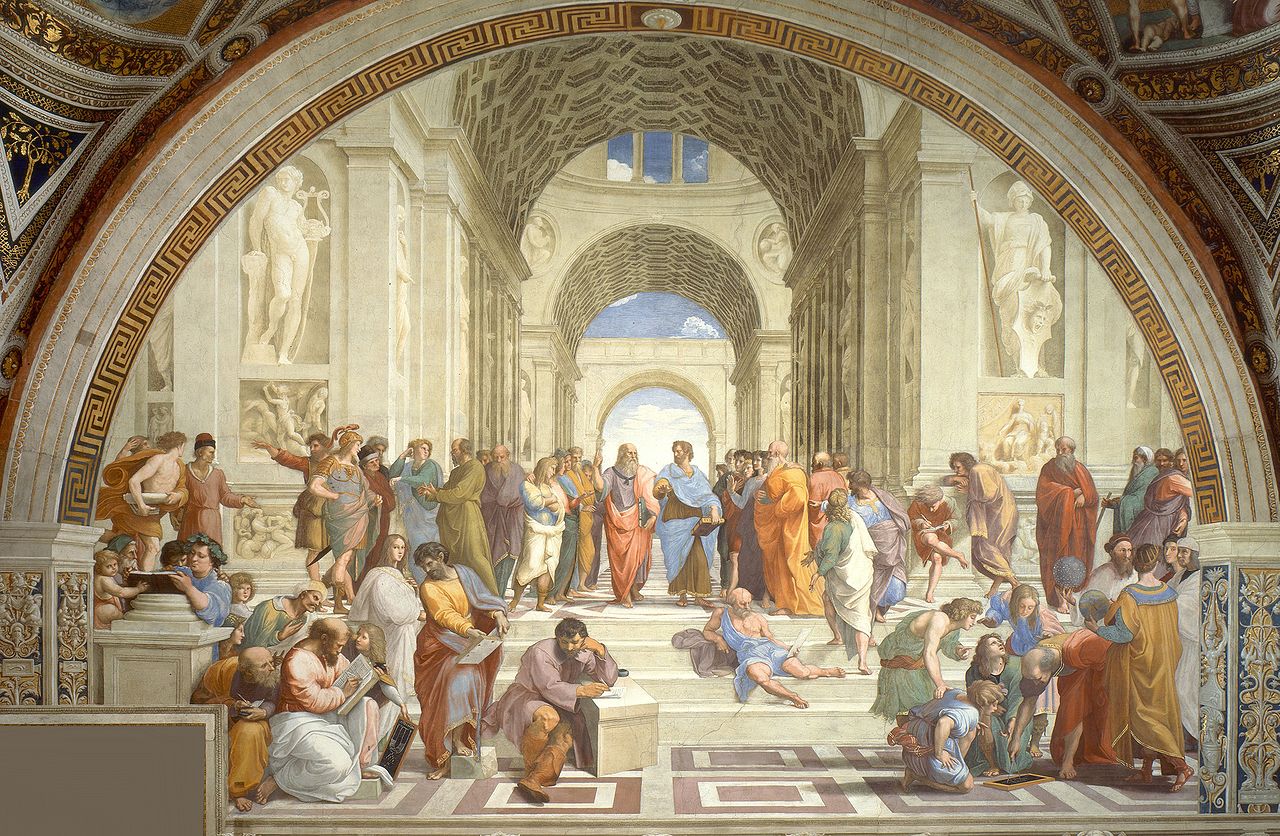
Photo:nypl.org
“Vain is the word of that philosopher which does not heal any suffering of man."- Epicurus
Philosophy, as it is practiced today, is abstract, theoretical, and detached from life, just one academic subject among others. In the Greco-Roman world, it was something quite different, argues the French philosopher Pierre Hadot. Philosophy was a way of life. Not merely a subject of study, philosophy was considered an art of living, a practice aimed at relieving suffering and shaping and remaking the self according to an ideal of wisdom; “Such is the lesson of ancient philosophy: an invitation to each human being to transform himself. Philosophy is a conversion, a transformation of one's way of being and living, and a quest for wisdom.” It is the practice of what Hadot calls "spiritual exercises" that brings about self-transformation and makes philosophy a way of life.
Philosophy As Therapy
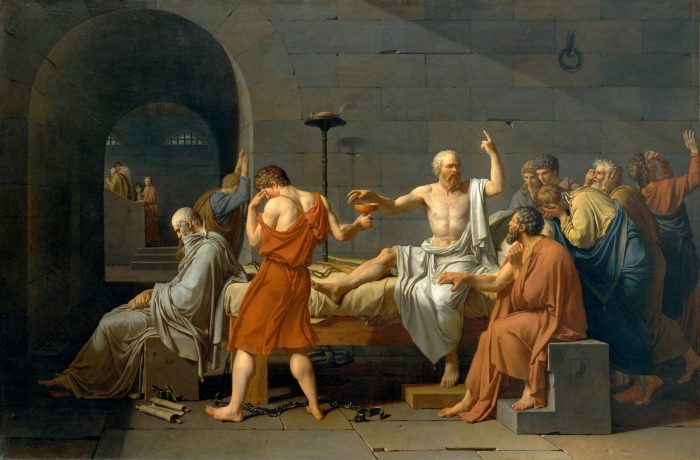
Photo: Greek Medicine
“unless the soul is cured, which cannot be done without philosophy, there will be no end to our miseries.”- Cicero
The Epicureans, Skeptics, and Stoics all believed the task of philosophy is to treat and relieve suffering. Philosophy was viewed as analogous to medicine, and the philosopher was seen as the physician of the soul who cured us of false beliefs, irrational fears, and empty desires.
They believed that the passions or emotions were the principal source of our suffering and unhappiness. That without philosophy, disorder, worries, fears, and unrest rules our soul. “Philosophy thus appears…as a therapeutic of the passions. Each school had its therapeutic method…linked…to a profound transformation of the individual’s mode of seeing and being.”- Continue to read
What is the essence of a good life? Aristotle tells us that it is ‘to serve others and to do good.’
‘Epicurus encouraged us to acknowledge every bit of happiness in our lives, to cherish the people and things we love, and to savour every opportunity.’
Aristotle's Guide To The Good Life
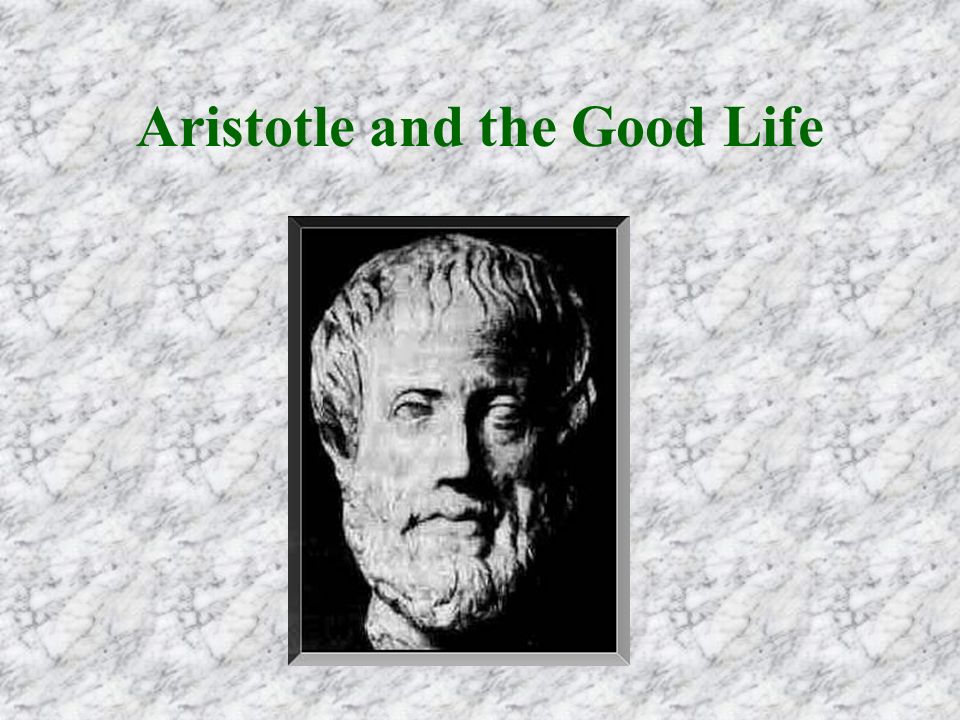
Photo:slideplayer.com
His studies in living the Good Life included advice like; moderation in all things, friends are worth more than gold and one swallow doesn’t make a summer. Fair enough, but how can we stop just quoting him and start living Aristotle’s Good Life? Much of his thinking seems surprisingly contemporary. He covers mindfulness, the value of teachers (his habit of wandering around the grounds of the school he founded, the Lyceum, in Athens, with his pupils trotting after him, led his pupils to be referred to as ‘the peripatetics”, or “people who travel about”) and the difficulties of adolescence.
So, here’s a short guide to Aristotle’s ‘Good Life’?
1. Value your friends
“For without friends no one would choose to live, though he had all other goods.”
2. Keep learning
Aristotle considered happiness to come more often from “those who are highly cultivated in their minds and in their character, and have only a moderate share of external goods, than among those who possess external goods to a useless extent but are deficient in higher qualities.” So that’s something to bear in mind when you go over your overdraft limit.
3. Reward yourself for overcoming personal struggles
“I count him braver who overcomes his desires than him who conquers his enemies; for the hardest victory is over self.”
4. Value teachers
The mean-spirited phrase ‘those that can, do. Those that can’t, teach” is a corruption of Aristotle’s ‘those that know, do. Those that understand, teach.” Aristotle saw happiness, fulfilment and a sense of civic duty all arising from education, and felt that “those who educate children well are more to be honoured than parents, for these only gave life, those the art of living well.”
5. Do it, don’t just talk about it
Actions speak louder than words. “Virtue is more clearly shown in the performance of fine actions than in the non-performance of base ones.”
6. Practise mindful meditation
A thought is just a thought. It doesn’t need to be acted upon. “It is the mark of an educated mind to be able to entertain a thought without accepting it.”
7. And finally…
Aristotle’s ultimate, and most difficult realisation. “Happiness depends upon ourselves.”...Continue to read more
See also: Aristotle on the Good Life
Epicurus And The Pleasant Life
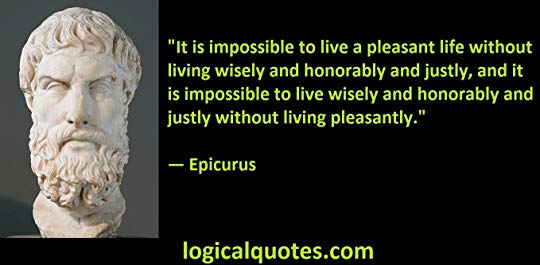
‘In our era of email, smartphones, and wild consumerism, it’s easy to lose sight of what’s important. Few know this better than Haris Dimitriadis, an ex-corporate climber who one day realized that, although he had all the hallmarks of success—money, a good job, the respect of his peers—he wasn’t happy. In fact, he felt hollow, dissatisfied, and anxious. Thankfully, he discovered Epicurus. In this pioneering thinker, Dimitriadis found a teacher whose ideas seemed specifically designed to cure our uniquely modern ache. Indeed, few classical philosophers remain as relevant and practical today; Epicurus’ worldview is rooted in our senses, feelings, and natural dispositions. Sweeping aside our modern assumption that the acquisition of happiness is necessarily painful and regimented—think of our love for strict workouts, diets, hard work, and other ascetic practices—Epicurus declared that finding happiness is easy: we simply need to embrace our natural desires. With wit, rigor, and in simple, easy-to-understand language, Epicurus and the Pleasant Life joyfully brings Epicurus singing into the twenty-first century. Leading the reader through the worlds of philosophy, religion, neuroscience, psychology, and astrophysics, Dimitriadis and Epicurus present a great, self-affirming truth: that you too can lead a blissfully happy life, if you only learn how to reach out and take it.Based on a worldview rooted in the reality of senses, feelings, natural dispositions, life experiences, and perceptions, this philosophy teaches us to trust our feelings, and use logic to make decisions only after we acknowledge our natural desires. That way, we will find our place in the natural world, and learn to live simply and joyfully in the company of good friends.Join the author Haris Dimitriadis on a journey through the history of philosophical and religious thought, as well as an in-depth look at the modern neuroscience, psychology, and astrophysics, and discover why the ancient Epicurean Philosophy of Nature matters as much today as it did two thousand and three hundred years ago! The answers you will find may surprise you, for you will learn, beyond any doubt, that you, too, hold the power of self-transformation, and a blissfully happy life.’- Continue to discover more
See also: Epicurus and Happiness
Wise & Life-Changing Lessons From The Ancient Stoics
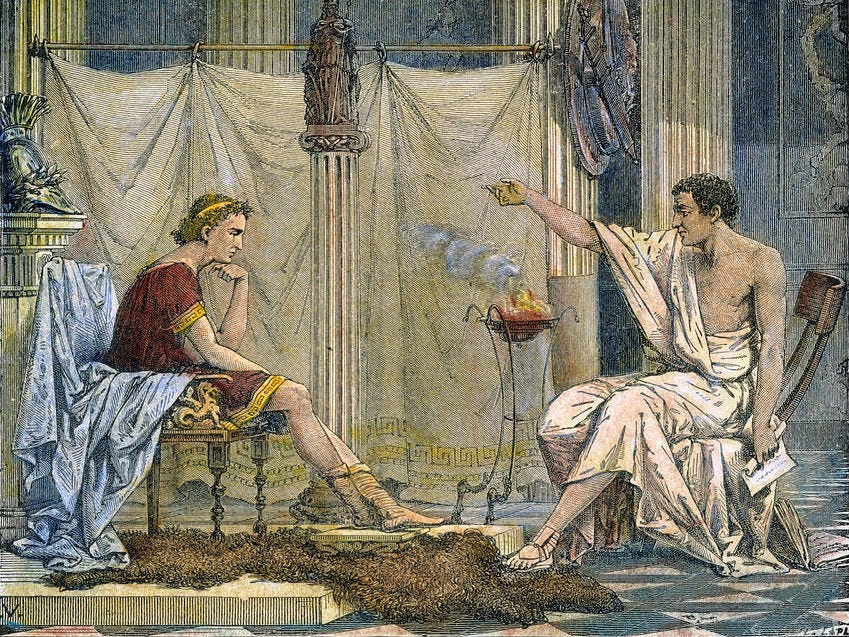
Photo:Wikimedia Commons
‘The private diaries of one of Rome’s greatest emperors, the personal letters of one of Rome’s best playwrights and wisest power brokers, the lectures of a former slave and exile, turned influential teacher. Against all odds and the passing of some two millennia, these incredible documents survive.
Could these ancient and obscure pages really contain anything relevant to modern life? The answer, it turns out, is yes. They contain some of the greatest wisdom in the history of the world.
These documents—from the likes of Marcus Aurelius, Seneca, Epictetus—constitute the bedrock of what is known as Stoicism, an ancient philosophy that was once one of the most popular civic disciplines in the West, practiced by the rich and the impoverished, the powerful and the struggling alike in the pursuit of the Good Life.’
So, what are these gems, pearls of wisdom?
- Change What You Can—Forget the Rest
- Start Living
- Know When to Stick (And When to Quit!)
- Pause And Be Grateful
- Remember That You Can’t Be Broken
- Always Love
- Don’t Burn The Candle at Both Ends
- Dig Deep Within Yourself
- Be Kind
- See The Bigger Picture
- Become Good Now
- Focus Inward—Don’t Judge Others
- You Choose The Outcome
- Be A Force For Good
- Love Your Fate
- Watch Your Words
- Make An Inward Change
- Take a Walk
- Don’t Be Ashamed To Ask For Help
- Do Your Job
- Look At The Night Sky
- Seize The Day
- Trust Yourself
- Remember You Are Going to Die
- Review Your Day
- Watch the Wise
- Perfect Your Character
- You Can’t Have It All—Learn to Prioritize
- Be Prepared For Sudden Attacks
- Kill Your Ego & Self-Delusion
- Receive Honors & Slights The Same Way
- You Always Have a Move to Make
- Persist & Resist
- Don’t Sell Yourself Too Cheaply
- Remember We Are All Mortal
- Accept The Haters As They Are
- Cultivate Empathy & Selflessness (Continue to read more about these timeless lessons)
‘Lessons from the ancient philosophers to help improve our lives today.’*
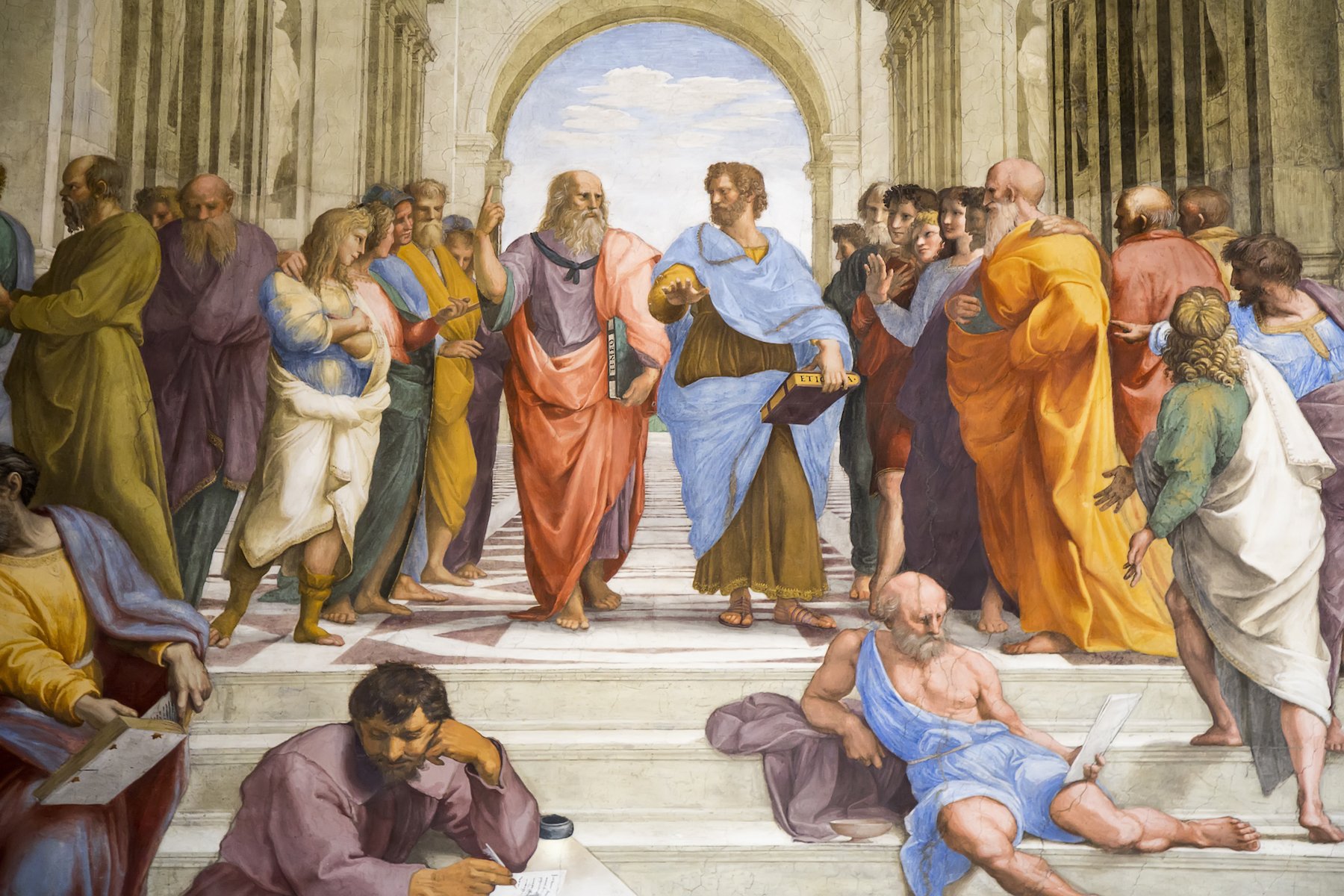
Photo:12 Famous Philosophers and Their Guiding Principles
‘Four hours spent wandering the aisles of Ikea for nothing. My boyfriend and I had long since stopped talking. I was ready to slap the next person who uttered a Swedish word. As I pushed my heaving cart into another room full of boxes I took a deep breath and fought the urge to cry. Thank God for philosophy, I thought to myself.
I first got interested in philosophy as a teenager. It was on the curriculum at my high school in Paris, but its image was pretty crusty – philosophers were greybeards who wrote convoluted sentences and looked as if they might need a good wash, right? But when I was 16, a teacher gave me a copy of Wittgenstein’s Tractatus Logico-Philosophicus and I was struck by one phrase: “That whereof we cannot speak, thereof we must remain silent.”
Suddenly, a whole world opened up to me: a world where we had the right to think and speak, but also to admit our own ignorance – to experience a sense of wonder. Ever since then, I’ve been fascinated by the question of how to apply the lessons of philosophers to improving everyday life – starting with my own.
Cut back to my disastrous Ikea trip. The day had started so well, full of careful list-making and planning. On most days I can wax lyrical about the dangers of consumerism, but once I actually entered the mind-boggling labyrinth of the Ikea store I was grabbing things left and right, filled with an insatiable need to buy things. Pot plants, cushions, spot lighters, a stuffed crocodile. By the time I had paid the £278.50 bill, I was filled with a deep sense of self-loathing. What happened?
I could blame it on Ikea’s clever merchandising. Or perhaps I had simply failed to restrain my desire for shiny new stuff. Baruch Spinoza would have a different answer. He believed there is no need to punish yourself for having desires; in fact, it’s beneficial to have them. According to his work, Ethics, all people contain an essential kind of energy, composed of desires, wishes and passions. But you don’t just wake up in the morning full of them. Desire reveals itself through certain situations – when browsing lampshades, for example. And once awoken, it sets your thoughts alight.
So should I hold off buying anything? For Spinoza, being ethical doesn’t mean swearing never to buy another tchotchke. The wisest people are not necessarily the most disciplined. They are the people who can come to a true understanding of the world around them, of what drags them down and what lifts them up. Ethics is really about trying to understand your passions and what drives you. Listening to your deepest self is the best hope you have.
Now before hitting the shops, I sit down and think about what I’m actually looking for – not just the objects I need, but what I want from them. Comfort? Excitement? To feel more at home in the space I inhabit? A few moments of reflection usually unearths a desire I wasn’t aware of, and means I make better choices.
Another area in which philosophy has transformed my life is my approach to health. The weekends of my 20s were roller coasters of feeling young, invincible and ready to party one minute, then enduring vile hangovers the next. A period of sanctimonious clean-eating and sobriety would ensue. During one of these phases, living off essential oils and self-care clichés, I’d finally feel virtuous. But inevitably the wheels would come off. Promising I’d have “just one drink” with friends would end several bottles of wine later and at 2pm the next day I’d be hating myself, yet again.
Aristotle, who had a lot to say about self-esteem, helped me break out of that cycle. In his book Nicomachean Ethics, he tried to answer the question: “What is the best way for humans to act?” Getting wasted every Saturday night might not be the answer, but he would still want us to think of it as an experience to draw wisdom from. He said that every moment in your life, even the embarrassing ones, can be used to gain a deeper understanding of yourself. That’s a pretty comforting thought, and helps explain why Aristotelian ideas have survived 2,500 years of humans feeling guilty.
For Aristotle, virtue doesn’t mean depriving yourself of the “bad” things; it’s more about giving yourself the possibility of being happy. In everyday language, being “virtuous” can mean being uptight, in a juice-cleansing kind of way, but learning to be good is ultimately about being more in harmony with yourself.
He talked about a meditative, wise kind of happiness that comes when you’re able to find courage, balance and serenity. A journey to Aristotelian happiness won’t come through taking extreme action or eliminating all carbs after 6pm. Virtue comes from living, which ultimately is made up of lots of tiny day-to-day experiences. It is only by patiently wading through daily life, making thoughtful decisions as often as you can, that you will make progress. If you can learn from your Sunday morning hangover, the next time you go out you will remind yourself that after three glasses it’s probably time to switch to water. And eventually, making that choice will become ordinary. As Aristotle said: “We are what we repeatedly do. Excellence, then, is not an act but a habit.”
Philosophy can seem like a pretty heavy subject, encouraging us to dwell on weighty life questions 24/7. In fact, it is often telling us the opposite – that we should worry less. I reflected on this over the holiday season, surrounded by family and friends compulsively checking their phones. In the midst of what was meant to be a festive weekend of relaxation, they were chained to an endless stream of news alerts, under the pretext they had to “stay up-to-date”. Epicurus would disagree.
A lot of people today associate the Greek philosopher, born in 341 BC, with luxury or hedonism, but Epicurus’s teachings were really more focussed on simplicity. He encouraged us to acknowledge every bit of happiness in our lives, to cherish the people and things we love, and to savour every opportunity – like the chance to spend two days with loved ones, sans updates on Donald Trump.
Epicurus said we should work to fulfil our essential needs but also realise that most of what we think we want is superfluous. Really, our needs are remarkably simple. Nobody requires a constant stream of notifications on their phone to survive. We may think we are bettering ourselves and the world by staying informed, but while the media shows us an endless list of reasons to be afraid, we have no control over most of what we read about. Being consumed by it does not make us more virtuous, altruistic or deep-thinking. It makes us unable to be present in the moments we have been given to live and to connect with others. Philosophy helps to remind us that sometimes wisdom comes from knowing less. Whereof we cannot speak, we must put our phones on silent.
Modern dilemmas that philosophy can help
- To lie or not to lie Philosophers believe in the pursuit of truth. So what should you say when your granny gives you the world’s most hideous jumper for your birthday? Telling her what you really think would break her heart. Thankfully, according to John Stewart Mill, you don’t have to be honest at any cost. Sometimes a white lie can have utilitarian value. Thanks, Gran.
- Mending a broken heart OK, there is no real cure for heartbreak except, perhaps, time. But Immanuel Kant’s scepticism about romantic passion – he favoured a deeper and more rational kind of love instead – reminds us that infatuation isn’t everything.
- Sticking to your fitness goals Friedrich Nietzsche’s concept of “the will to power” is the intellectual equivalent of your most upbeat workout playlist – a shot of utter bravura to defeat even the strongest feelings of inertia.
- Dealing with incomprehensible in-laws You love your partner, but talking to their family feels like signalling to aliens. There’s a reason you don’t understand each other. Ludwig Wittgenstein argues that every group of human beings has its own unique culture and code. If you put in the time to learn their particular language, you’ll soon be able to communicate fully.’
*This article by Marie Robert was first published in the Guardian on Saturday 15 February 2020.
Marie Robert is the author of Keep It Together: Philosophy for Everyday Emergencies (Scribe, £9.99). Buy it for £8.39 at guardianbookshop.com
'This international bestseller will introduce you to twelve thinkers who can help you to keep it together, even when everything in your life seems to be falling apart. You'll get advice from Epicurus about how to disconnect from digital media, Aristotle's help with curing hangovers, Nietzsche's take on getting in shape, John Stuart Mill's tips for dealing with nightmare social occasions, and many other classic insights to help you navigate life today.
This is philosophy for the real world: the key ideas that can guide you through life's difficult times, when you're angry, embarrassed, scared, or confused. It turns out that many of our contemporary crises are far from new. As teacher and philosophy professor Marie Robert shows, sometimes the best solutions to modern problems are timeless.’
And now lest we forget:

Photo: forge.medium.com
Why You Should Study Philosophy
Why Study Philosophy? 'To Challenge Your Own Point of View'
Related reading:
